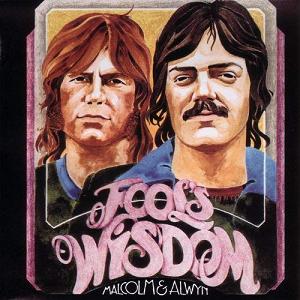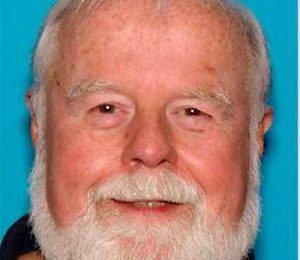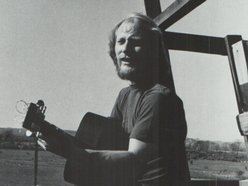This is mark Joseph “young” blog entry #257, on the subject of Verser Relationships.
With permission of Valdron Inc I have now completed publishing my first three novels, Verse Three, Chapter One: The First Multiverser Novel, Old Verses New, and For Better or Verse, in serialized form on the web (those links will take you to the table of contents for each book). Along with each book there was also a series of web log posts looking at the writing process, the decisions and choices that delivered the final product; those posts are indexed with the chapters in the tables of contents pages. Now as I am posting the fourth, Spy Verses, I am again offering a set of “behind the writings” insights. This “behind the writings” look may contain spoilers because it sometimes talks about what I was planning to do later in the book–although it sometimes raises ideas that were never pursued. You might want to read the referenced chapters before reading this look at them. Links below (the section headings) will take you to the specific individual chapters being discussed, and there are (or will soon be) links on those pages to bring you back hopefully to the same point here.
There is also a section of the site, Multiverser Novel Support Pages, in which I have begun to place materials related to the novels beginning with character papers for the major characters, giving them at different stages as they move through the books.
This is the fifth mark Joseph “young” web log post covering this book, covering chapters 85 through 105. These were the previous mark Joseph “young” web log posts covering this book:
-
#218: Versers Resume (which provided this kind of insight into the first twenty-one chapters);
- #226: Versers Adapt (covering chapters 22 through 42);
- #235: Versers Infiltrate (covering chapters 43 through 63);
- #243: Verser Redirects (covering chapters 64 through 84).
History of the series, including the reason it started, the origins of character names and details, and many of the ideas, are in those earlier posts, and won’t be repeated here.

Return to Top
Quick links to discussions in this page:
Chapter 85, Slade 117
Chapter 86, Brown 136
Chapter 87, Kondor 118
Chapter 88, Slade 118
Chapter 89, Brown 137
Chapter 90, Kondor 119
Chapter 91, Slade 119
Chapter 92, Brown 138
Chapter 93, Kondor 120
Chapter 94, Slade 120
Chapter 95, Brown 139
Chapter 96, Kondor 121
Chapter 97, Slade 121
Chapter 98, Brown 140
Chapter 99, Kondor 122
Chapter 100, Slade 122
Chapter 101, Brown 141
Chapter 102, Kondor 123
Chapter 103, Slade 123
Chapter 104, Brown 142
Chapter 105, Kondor 124
Chapter 85, Slade 117
The consideration of invisibility versus insignificancy is on one level filler, something to make it seem as if it took some time to reach their room. It also reflects Slade’s character a bit along the way, as he ponders this.
The confrontation with Mlambo was not foreseen; I was creating this as I went.
Chapter 86, Brown 136
At this point I decided that I couldn’t use the name of the real Ambassador Harris, so I changed it to Morris. I don’t know how old his daughter actually is, but I think the distance is pretty safe. I know nothing about the real ambassador that is not available on the Internet to a cursory search.
On the name “Dorin”, I did a lookup of the most common given names in Romania, and it was second. Andrei was first, but Andrei seemed such a universally common eastern European name, and Dorin had the benefits of being extremely rare in the United States while being credible as a given name to American ears. It sounded like a foreign European name.
As I was writing it, I realized what the next twist should be.
Chapter 87, Kondor 118
A “widget” is, apparently, any undefined material object produced or inventoried in a manufacturing economy. The word is used in such fields as law and economics in the sense of “it doesn’t matter what this is, only that there is something being made, stored, marketed, or sold.” It thus appears quite a bit on exam questions.
I was exploring something for Joe to do, some reason for him to be here other than as a holding world. The idea that he might discover pilfering in supplies crossed my mind.
I often tell people that “never” is too big a word, at least in the contexts in which it is often used. Someone will question whether someone else “never” arrived, and I will observe that what they mean is “not yet” (particularly if it’s about someone coming home). Joe’s context is different, but it’s still too big a word–he could catch someone stealing, it just would not be easy.
The theft of the vorgo is told in Old Verses New.
Joe faces the problem that even when we don’t believe it we tend to think of situations in terms of why we are there, as if there is some reason behind such events. He keeps reminding himself that it’s not true, but also falls into the pattern of believing it is.
The discussion of the social activities was backwritten when I reached the place where I realized I’d been ignoring it.
On the read-through edit I thought of the value of electrical generators, and envisioning them portable led to vehicles, and then to water purifiers, which led to pumps, all inserted at that point.
Chapter 88, Slade 118
For a while this was the last chapter I had written. I had started Joe in his new world, and just about here moved all the Brown chapters forward and began working on Derek’s next assignment. I was not certain what I was going to do with the Slades, even as to whether they would stay in this world or leave it, but I was comfortable with where the story had gone. If it were not that I needed to bring Bob to the next world with Joe and Derek, I might have ended his story here for a while.
Chapter 89, Brown 137
I did an Internet search for most popular candies in England. I had forgotten that Cadbury was an English candy company, but there were several (delicious sounding) Cadbury candies available, plus some others that sounded enticing. I also found Jelly Babies, and a place online to order them, so I might be trying to put together a collection of promising English candies sometime in the future. I saved the page.
Chapter 90, Kondor 119
Reading over the last few Kondor chapters since his arrival at Fort Porthos, I came up with a direction, what was going to happen. Someone is going to sabotage one of the main supply warehouses on the base, planting a bomb which Joe will discover and remove, but will not be able to defuse. However, for a few chapters I’m going to have to stall that, let him settle into the base a bit.
When I started doing the backwriting to get Kondor involved socially, I recognized that I had ended the previous Kondor chapter with the statement that Vargas needed to see him, and had failed to follow up on that. I had not had any particular ideas for that when I had written it, and now from a considerably later perspective I found myself trying to make sense of it.
There was more backwriting here, as I introduced Lieutenant Smith in the company of several other officers. I had decided as I progressed that Smith needed to be one of the people in munitions supply, so I put him there at this point.
Chapter 91, Slade 119
I pondered long what to do with the Slades at this point, and I still don’t know–but I had a couple of good thoughts. The first was to have Colonel Mlambo invite them to stay for dinner and avail themselves of the room for the night. My son Kyler suggested that most players in the position in which Bob found himself wanted some downtime, a place to rest and relax, and I was mindful of the fact that General Vargas expected him to return for the next trial. I suddenly got the notion that with his small chest of valuables he might be able to buy a small manor somewhere, rename it Slade Manor, and return to the trial with validation of his claimed identity. So that’s the direction I struck next.
Chapter 92, Brown 138
I needed Derek to pick a particular path, in order to bring my next twist into the story. In order to get him there, I needed to explain why he did that, instead of any of several other obvious possibilities. That could be accomplished by the direction in this chapter, of listing the possibilities and considering the problems.
Chapter 93, Kondor 120
I had set this up to be a Joseph Kondor chapter, and then pondered what to write for several days. The problem was that I knew where I was going with both Slade and Derek, and what some of the intermediate steps were, but with Kondor I knew only what the next big event would be that took him out of this world, not what would happen before that to bring him to it. So I decided to delay Joe and go back to Bob, who probably really had the most to get through before I removed him. It would create the feeling that very little was happening with Joe, which wasn’t exactly true but was the right feeling. Then when I started backwriting I decided I needed Kondor chapters, and inserted one here. The off-duty relationship stuff was what was really needed, and this was all about that.
This also got me thinking about a companion for Kondor–not a love, but a sidekick sort of companion. I liked the rough sketch of a personality I created here for Zeke, and was thinking in that direction, trying to figure out when I could integrate someone like that into Kondor’s life and how to do it. I became more intrigued by the idea, and returned to fill in some description.
Chapter 94, Slade 120
As mentioned, I had set up a Joseph Kondor chapter, and then pondered what to write for several days and wrote this instead. Thus this was originally chapter 93, and then got bumped. Not much happens in it.
Chapter 95, Brown 139
When I added a Kondor chapter as 93, this got bumped from 94 to 95.
I toyed with several British-sounding names before settling on Richard Lloyd Williams. He was a minor character, but he needed a name.
Research is so convenient today. I was going to have the meeting in a bakery, and place it near a street corner near the embassy, but when I called up the map of the area it brought up markers to several eateries, including an Orygyns Specialty Coffee, about a minute’s walk from the embassy, which looked like as good a place as any.
Chapter 96, Kondor 121
I had skipped Kondor because I knew what was going to happen but not what was happening. I had decided he would reach the next world first, but that it couldn’t happen quite yet. Then I restored Kondor in chapter 93, and this got bumped from 95 to 96, and from Kondor 120 to Kondor 121. I had not yet written chapter 93 when I made this 96, but had some ideas percolating for the social interaction part.
I began formulating the possibility that Zeke would go with him–even came up with a reasonable explanation of how that happens–so I decided to go back and give him more of a description. I also expanded their relationship here.
Chapter 97, Slade 121
When I added a Kondor chapter as 93, this got bumped from 96 to 97.
I debated for several days whether to attempt to create the dinner conversation or merely reflect on it after the fact. I decided that I really couldn’t duck it–at this point it was in a sense critical to the story, even if nothing would come of it. So I had to figure out what they would say to each other, and the starting point seemed to be that Slade had made that suggestion about the conspiracy to keep the war going to provide a unifying common enemy.
In Mlambo’s statement about what “we” all are taught, the first version that went through my mind was “as all blacks are taught”, but before I got to typing it I realized that he would not say that. He doesn’t think of himself as “black” but as “normal”, part of ordinary humanity.
I realized as I was writing this that in order to say what I wanted to say I was going to have to push Slade out of his vocabulary a bit. To get there, I decided that if Shella provided a couple words for him when he needed them, the readers would overlook the rest of the stretching.
Chapter 98, Brown 140
When I added a Kondor chapter as 93, this got bumped from 97 to 98.
The three Romanian expressions Derek uses are the only three I remember from my own three weeks in Romania (not true–I remember that something like “freeshka” means dessert). They mean idiomatically, in sequence, “what does this cost”, “thank you”, and “you’re welcome”. I never saw them in print, but since Romanian is written in the Cyrillic alphabet I would have to transliterate them anyway, so I’ve provided a phonetic representation of how I would say them, figuring that’s how he would say them.
Chapter 99, Kondor 122
In my reconstruction process when I decided to get Kondor more socially integrated, I also moved this chapter up from 99 to 98, and of course it was renumbered Kondor 122 and then bumped back to 99.
This came together in pieces. First, I thought that it would help stall things if they found a missing person with a name similar to Kondor, that they might think was misfiled. I was thinking Joseph Sanders. Then I decided that he must be a captain and a doctor, which doesn’t seem a stretch as M.A.S.H. gives the impression that all doctors in the army hold the rank of captain or better. I decided he would be lost in transit, that he left his original location and never arrived at his destination, without any clear indication of what happened. In the next steps I decided that his destination was the other Colonel Roberts (I had to look back to find B Company), that his first name was actually listed as John, not Joseph, and that he had come from a combat area. Then I decided that Company B was an operation whose primary job was retasking personnel who for whatever reason were leaving their present assignment but staying in the military. That meant that if Kondor was Sanders, he was probably being sent there so they could find somewhere else to send him, and Roberts could make the argument that he could use the man here now for a while until they found that other job. That got me where I was.
The last decision was that it wouldn’t be a formal meeting but an informal passing on the grounds.
Chapter 100, Slade 122
This had been chapter 98 before I started reordering things to accommodate more social interaction for Kondor.
I had come up with this plan to create Slade Manor already, and now I put it in the book. I was expanding on the detail as I went.
When I went to reference the trial, I realized I didn’t remember the name of the officer who raised the matter. I typed the title “Lieutenant” and then put in the “what’s-his-name” to show that Bob didn’t remember either, and then went digging. I noticed that the name did not appear at all during the trial, but the rank of Captain did, and that it wasn’t until Slade was discussing his departure plans with Vargas that the name “Captain Lee” appeared. I had Shella provide it, and Slade repeat it with an emphasis on the rank.
Chapter 101, Brown 141
This had been chapter 100 before I inserted the extra chapter as 93 to facilitate Kondor’s story.
I’d moved Derek into a difficult situation, and now I had to get him through it. Thus I had him consider his options. I did a check of what psionic skills I would permit in this world under the rules of the game, but then decided that the only one he had tried was the mind reading (which is his best) and that he probably wouldn’t rely on the others without testing them. I had specifically given him the darts because I knew this was coming, but had to figure out how to make it work–and what Derek would do next.
Chapter 102, Kondor 123
This had always been chapter 102, and after I added the extra chapter 93 I moved this up to keep it in that spot, as part of getting the extra space for Kondor’s social interaction. It had been Kondor 122, increased to 123.
I was not exactly filling space, but trying to explore how I was going to get to my big exit moment in this story. I had determined that someone, some anti-United faction somewhere, was going to plant a bomb, probably in the ordinance storehouse, and that Kondor was going to find it and, not being trained in defusing bombs, remove it from the building, only to be killed when it detonated. I thus needed to start setting up a credible base for such an attack.
I also realized at this point that I was making a mistake in the Kondor story, because he wasn’t interacting with the other soldiers. I realized it because as I was writing about the lack of racial tensions I thought it would make Kondor uncomfortable to have a white girl in the cafeteria show an interest in him, and the other soldiers encourage him to get to know her–and I recognized that there was no indication that he knew any of the other soldiers. He had no friends here; other than the commander and his two top officers, all the people were faceless. That was going to require some backwriting to fix. I added material to chapters 81, 84, 87, 90, and then inserted a new chapter 93, bouncing a lot of chapters one place and resequencing some to bring Kondor back into step with the others.
Again I added the social sequence later, and I was creating it as I wrote. Mary’s drink went from soda to coffee to hot tea to hot chocolate in seconds (tea was actually typed and deleted) as I tried to give her the right personality on the job.
It was also at this point that I went back and added the security detail at the munitions supply warehouse, so I could introduce Lt. Smith earlier and have him where I wanted him.
Chapter 103, Slade 123
This had been chapter 101, but I moved it when I reorganized to make more time for Kondor’s social interactions.
The problem I faced with the Slades at this point was that I had to get through a lot of probably less interesting stuff without either boring the reader or giving the feeling of having skipped it. In Thumbwars one of the funniest lines is when after not having actually rescued Princess Leia they are leaving the Death Star with her and she says, “I escaped somehow.” It’s funny because it’s so wrong, plot-wise, and that’s what I’m trying to avoid here.
I had decided that Slade was going to claim to be a refugee, a Lord Slade from a manor further north that had been overrun by the blacks, who had grabbed a small bit of his treasure and was hoping to find a new home.
I did the combat scene so it wouldn’t seem like they simply leapt to their new location.
I actually was stuck in the middle of this chapter for several months. I tried to enlist two people to come aboard as co-authors and give me ideas, and ultimately simply decided that Shella would answer the question about what food they had, they would eat, and they would continue. While I was writing that I realized that they really wouldn’t have much food, and the only obvious way to get more would be to head for the white lines, so I pointed them that direction. This was also when I decided to go back and add more to the Kondor story, although actually I had finished this and started writing the chapter which now stands as the previous chapter before I did that.
As a boy I had noticed that the bread and rolls my mother purchased from the “real” Italian bakery had very thick hard crusts. I later noticed that the common rolls in Romania were worse. Decades later I realized that this protected the soft interior from vermin, and I would wager also kept it fresher.
Chapter 104, Brown 142
I had thought through a good part of this chapter and the next while expanding the Kondor story, but couldn’t quite make it all work right. The e-mail was an abrupt solution to the first problem, and then I split the next part to another chapter.
Chapter 105, Kondor 124
I was going to make this two chapters, but it unfolded so swiftly and smoothly that I realized breaking it would give me a very short second chapter. I was now committed to taking Kondor to the final world.
This has been the fifth behind the writings look at Spy Verses. If there is interest and continued support from readers we will continue to publish this novel and the behind the writings posts, and prepare the fifth novel to follow it.










